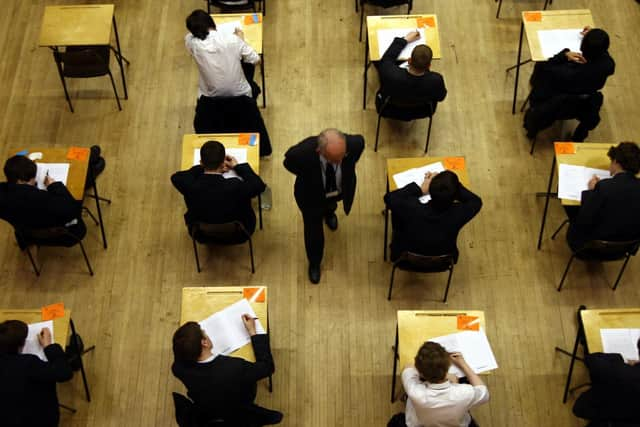Education inequality in Leeds could take ten years to fix warns post 16 expert
and live on Freeview channel 276
It comes as A Level students collect their exam results today, followed by GCSE pupils finding out their grades on Thursday.
While results this year will be fairer than last year, David Holtham, executive principal at Elliott Hudson College and the lead on post 16 education for the GORSE Academies Trust, said the whole scenario around affluence, achievement, remote learning and inequality is so complex - not even the government can solve it.
Advertisement
Hide AdAdvertisement
Hide AdHe has urged the government to start working on a contingency plan for 2022 should exams not go ahead in case of isolations or further national lockdowns and questioned the effectiveness of remote learning.


Mr Holtham said: "We work in an area where there are fairly high levels of socio-economic challenges, we will probably always make the case that people that are disadvantaged will come out worse. I don't want to make sweeping judgements, because all students have been affected, but it would be fair to assume students who are disadvantaged are less able to overcome the challenges COVID has presented.
"Everybody knows the UK education system is one of the most unequal in the world in terms of the issues it presents to students classed as disadvantaged. That whole issue is wider moving forward and next year will be challenging in that respect."
He explained the link between affluence and achievement, and where young people start from and end up, is "more profound" in the UK than other developed countries and questioned the ability of Westminster to understand the barriers that some young people have to having successful futures.
Advertisement
Hide AdAdvertisement
Hide AdMr Holtham said: "That is one of the biggest things to confront here. Not everybody is sat in a nice room on their own with a desk and a laptop engaging with remote learning in a positive way. Some are in houses of multiple occupation, there is bad connection? Schools have been good at distributing equipment but that does not mean the environment is conducive to learning. We don't want people losing confidence in themselves. You hear phrases like 'what's the point' from young people and they give up on themselves at a young age and don't have that belief and aspiration that we want them to have.
"It is difficult enough for someone like me to understand the challenges some young people have, but a middle class education and political system does find it quite tricky to fully comprehend how significant the barriers are for young people. That is a genuine challenge and successive governments have found it difficult to address inequality in society and COVID will not have made that easier.
"There will be researchers out there trying to work out what the long term implications are going to be but you don't have to be an academic to understand."
He said whether a child is in year 5 of primary school, or year 7 of secondary school, their experience over the last couple of years will have had an impact on where they are now and how they progress.
Advertisement
Hide AdAdvertisement
Hide Ad"Some groups are better able to cope with disruptions, that will be the crux of levels of inequality to some degree. It would be simple to think it is for a couple of years but in reality it will affect the whole education system for so long as that student stays in it. Reception age this year will see the challenges, we are going to be looking at that around ten years and that is provided things go back to normal from this point onwards."